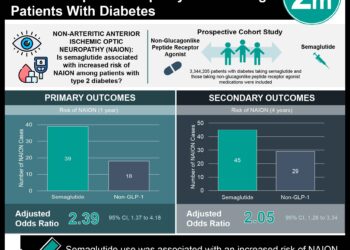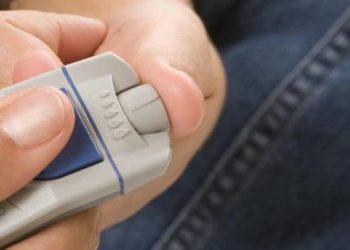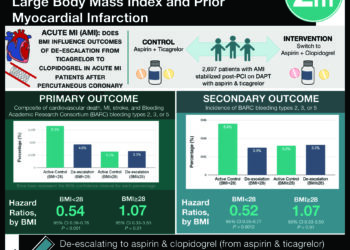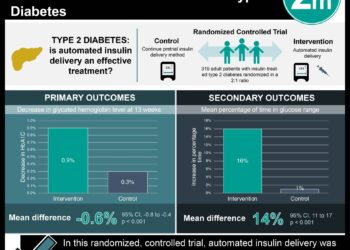Earlier adiposity rebound associated with worse metabolic markers
Image: PD
1. Among children born in a Japanese town, those who had a rise in their body mass index (known as adiposity rebound) earlier were found to have significantly higher body mass indices at 12 years of age.
2. Earlier ages of adiposity rebound in boys were also significantly associated with increases in triglycerides, decreased high density lipoprotein, increased apolipoprotein B, and increased blood pressure levels at 12 years old.
Evidence Rating Level: 2 (Good)
Study Rundown: On average, childhood body mass index (BMI) begins to increase substantially after reaching a nadir at 6 years of age. This reversal in BMI course is known as adiposity rebound (AR). Previous studies have shown that earlier AR is associated with increased BMI later in childhood and an increased risk of developing diabetes in adulthood. Researchers in the current study sought to identify the potential connection between time of AR onset and aspects of metabolic syndrome (hypertension, glucose intolerance, hypertriglyceridemia, decreased high-density lipoprotein [HDL-C], and central abdominal obesity) in childhood, namely plasma lipids and blood pressure, to better characterize potential childhood risks of diabetes and cardiovascular disease. Results showed that earlier AR onset was associated with higher BMI, triglycerides, atherogenic index ([total cholesterol – HDL-C]/HDL-C), apolipoprotein B, blood pressure, and decreased HDL levels in 12-year-old boys. For girls, earlier age at AR was only associated with higher BMI and apolipoprotein B at 12 years of age. The highest BMIs were seen among those with the earliest age of AR onset. Although limited by its small sample size and population base, this study highlights the potential relationship between BMI and metabolic derangements starting in childhood. Healthcare practitioners need to be prepared to implement effective exercise and diet interventions in an effort to prevent poor health both later in childhood into adulthood.
Click to read the study, published today in Pediatrics
Relevant Reading: Early adiposity rebound in childhood and risk of type 2 diabetes in adult life
In-Depth [prospective cohort study]: A total of 271 children (124 girls) born in Fujioka, Japan during 1995-1996 were included in this study. Height and weight were measured for each participant 15 times over the course of the first 12 years of each participant’s life and used to calculate BMI to determine the age of AR. Blood pressure and lipid measurements (total cholesterol, triglycerides, HDL-C, low-density lipoprotein [LDL-C], apolipoprotein B) were performed at age 12. Researchers utilized a simple linear regression analysis to determine the association between time of AR, plasma lipids, and blood pressure. Among boys, AR onset occurred at a mean ago of 4.8 + 1.4 years and, among girls, it occurred at a mean of 4.7 + 1.5 years. In most participant groups, earlier the age of AR onset was associated with significantly higher BMI at 12 years of age (p < .001 for boys and girls). Analysis also showed that early AR was associated with higher apolipoprotein B in (p < .001 in boys and p < .01 in girls). Early AR was associated with significantly higher triglyceride levels (p < .001), atherogenic index (p =.001), systolic blood pressure (p = .05), and diastolic blood pressure (p = .03) in 12-year-old boys, effects not seen among girls.
By Brandon Childs and Leah H. Carr
More from this author: Dramatic rise of gun violence seen in PG-13 movies, Increased sleep linked to lower dietary intake in children, Multiple variables related to physical activity levels in preschool children, Athlete-endorsed food and beverage products often unhealthy, Minorities under-treated in pediatric emergency departments
©2012-2013 2minutemedicine.com. All rights reserved. No works may be reproduced without expressed written consent from 2minutemedicine.com. Disclaimer: We present factual information directly from peer reviewed medical journals. No post should be construed as medical advice and is not intended as such by the authors, editors, staff or by 2minutemedicine.com. PLEASE SEE A HEALTHCARE PROVIDER IN YOUR AREA IF YOU SEEK MEDICAL ADVICE OF ANY SORT.







